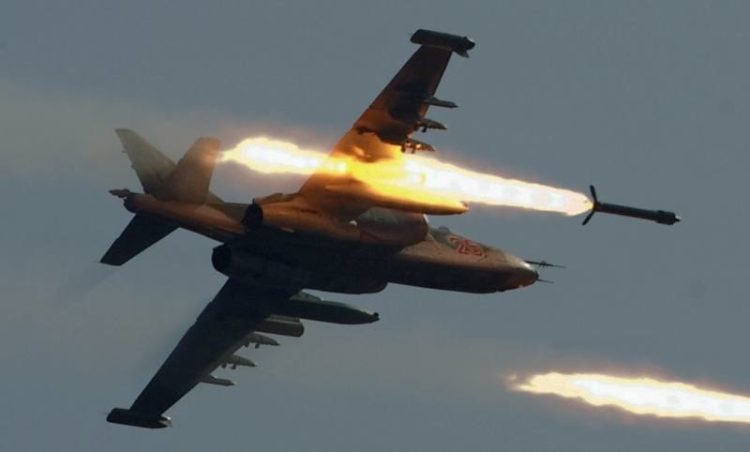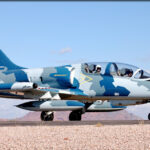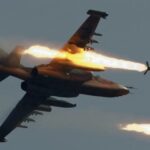The Nigerian military enjoys the support of the population as it wages more than a decade-long campaign against terrorists, bandits and separatist groups. However, the rate at which communities have become collateral damage is too alarming to be ignored. The airstrikes targeted at the Lakurawa terrorists in Gidan Sama and Rumtuwa villages in Sokoto State during the Christmas festivities, killed 10 people who were not terrorists but innocent villagers.
Initially, the military explained the killings away by alluding to media disinformation. It was Sokoto State Governor Ahmed Aliyu who put the incident in clear perspective. He explained it thus: “I visited the families of the victims. I am devastated. It wasn’t a deliberate act by the security operatives. They were actually targeting the invading terrorists. They succeeded in neutralising them during the first and the second attempts of the operation. It was the third operation that went awry.”
The re-emergence of Lakurawa terrorists in the latter part of 2024 was an embarrassment to Nigerians who assumed that Boko Haram, ISWAP and bandits were the terror groups operating in the North East and North West. To allay fears, the military spoke about Lakurawa as a lesser threat to national security than the other groups. Under the codename ‘Operation Fasan Yamma’, the Joint Task Force in the North West took up the challenge of clearing the Lakurawa fighters from Sokoto, Kebbi, and parts of Zamfara State where the group had its tentacles. This operation in Gidan Sama and Rumtuwa, to say the least, lacked the kind of precision needed in an intricate fight against terrorists who are embedded in rural communities.
The coordinator of the Joint Media Coordination Centre, Lt-Col Abubakar Abdullahi, had argued away the deaths recorded in the villages by accusing journalists who reported the casualties as being engaged in disinformation. He had said, “There is a significant risk that terrorist groups may attempt to undermine military successes through media disinformation, necessitating caution concerning unverified claims, especially in the ongoing fight against terrorism and banditry.
- Water transfer: The panacea for food security in Nigeria
- Captain Hosa Okunbo: A titan who soared above limits
“Importantly, the targets struck in the vicinity of Gidan Sama and Rumtuwa have been positively identified as associated with the Lakurawa group, reinforcing the justification for the military action taken.” Nigerians accept the justification for the military action but not the frequent killing of innocent people.
After more than a decade of military operations in the asymmetrical war against terror groups, it is expected that the Nigerian Army and Nigerian Air Force should have improved in their capacity to target enemy forces. The most devastating of the mistaken operations occurred in Rann in Borno State and Tudun Biri in Kaduna State. At Rann, in 2017, the Nigeria Air Force mistakenly bombed a refugee camp, killing about 112 people.
In 2023, there was a similar mistaken bomb attack in Tudun Biri in Kaduna State where the Nigerian Army’s drone unit accidentally bombed the community, resulting in 120 casualties. There are about 18 other such incidents in the military’s operation against terrorists in the North, leading to the deaths of approximately 450 people in the last decade.
With their accumulated experience in fighting terrorists, Nigerians expect enhanced precision in military operations through a combination of technology adaptation, strategies and improved human intelligence from the Nigerian military.
The military must review its operations to reduce incidences of the killing of civilians while targeting terrorists. They must update their targeting procedures, tactics and techniques to reflect lessons learned and emerging threats. This includes training on minimising civilian harm and adhering to international humanitarian laws when carrying out military operations.
The Nigerian Army must come up with a warfare strategy that is built on integrating modern technology, such as drones, into their operations. Drones could help monitor and target terrorist activities more accurately, reducing the risk of civilian casualties. The Nigerian Army and Nigerian Air Force must not ignore the advantages of collaborating with other security agencies, governments and international organisations in the sharing of intelligence and best practices. They must deliberately court and build trust with local populations to enable them to gather accurate information and prevent misunderstandings. Working closely with local communities to gather intelligence can help identify potential threats early and prevent attacks. If the military is well trained and is made to adhere to international guidelines, security operatives can restrict the use of explosive weapons in populated areas to minimise civilian harm.
There are several consequences of the mistaken bomb attacks on Nigerian civilian communities. Though much attention is never paid to it, survivors and witnesses of such attacks often suffer from long-term psychological trauma, including Post-Traumatic Stress Disorder (PTSD). Most times, they are abandoned to their fate. Apart from the psychological trauma, the incidents have the potential to erode trust between the military and local populations, making it harder to gather intelligence or secure the cooperation of the local communities when carrying out military operations.
In developed societies, there are ongoing debates about the moral and legal responsibility of the military for the kinds of mistakes that lead to casualties among civilian populations. There is the resounding argument that the narrative of “honest errors” in such killings is no longer justifiably excused; those who make such ‘mistakes’ are being called out for punishment. Nigeria must live up to this standard by holding those who erroneously bomb civilians to account. There must be thorough investigations and possible prosecution of those found to have handled their military operations with levity.

 Join Daily Trust WhatsApp Community For Quick Access To News and Happenings Around You.
Join Daily Trust WhatsApp Community For Quick Access To News and Happenings Around You.

